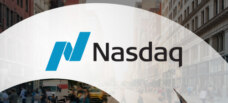Overview
-
Quantitative insight
The Average Engagement Score tracks how actively audiences interact with webinars and digital experiences.
-
Performance metric
Helps marketers evaluate the success of engagement strategies within the ON24 Platform.
-
Optimization tool
Provides data to refine event design and audience engagement techniques.
What is the Average Engagement Score?
The Average Engagement Score is a key performance metric within the ON24 Platform that quantifies audience interaction and participation. It measures how attendees use engagement tools — such as Q&A, polls, surveys, downloads, and chat — to determine how effectively a webinar or event keeps its audience engaged.
Each attendee’s engagement is tracked throughout the session and converted into a numerical score, typically displayed as an average across all participants. This score helps marketers assess how successful their content and delivery methods are in driving interaction and sustaining attention. High engagement scores indicate strong content resonance and a well-designed audience experience, while lower scores signal opportunities for improvement.
Why it matters
- Measures audience activity: Translates qualitative interactions into measurable insights that reflect true participation levels.
- Evaluates event performance: Helps determine how well engagement tools and webinar design foster interaction.
- Supports campaign optimization: Provides actionable data to enhance content strategy and audience retention.
How it’s used
- Monitor engagement trends during webinars using the Engagement Dashboard within ON24.
- Compare Average Engagement Scores across events to identify high-performing formats or topics.
- Adjust webinar design by adding interactive elements like polls, Q&A sessions, or downloadable assets to increase participation.
- Use scores to align marketing and sales teams by identifying highly engaged attendees for follow-up.
- Reference engagement benchmarks from ON24 reports, such as the Webinar Benchmarks Report, to measure performance against industry standards.
- Incorporate engagement data into audience segmentation for more targeted post-event campaigns.
Key benefits
- Provides clear performance metrics: Offers a single, consistent way to measure audience engagement across all digital experiences.
- Improves event quality: Informs webinar structure, pacing, and content decisions to maximize interactivity.
- Identifies top-performing sessions: Highlights which events or speakers resonate most with attendees.
- Strengthens personalization: Enables tailored engagement strategies based on audience behavior patterns.
- Drives data-informed marketing: Links engagement insights to pipeline performance and lead scoring.
Frequently Asked Questions
- What is the Average Engagement Score?
- It’s a metric that measures how engaged audiences are during webinars by tracking interactions with engagement tools like polls, Q&A, and downloads.
- How is the Average Engagement Score calculated?
- The ON24 Platform assigns engagement points based on attendee actions — such as participation in polls or downloading resources — and averages these scores across all participants.
- Why is the Average Engagement Score important?
- It provides marketers with a quantifiable view of audience interest and helps identify which sessions or formats drive the highest engagement.
- What factors can affect engagement scores?
- Content relevance, interactivity options, speaker delivery, and event timing can all influence engagement performance.
- How can marketers improve their Average Engagement Score?
- Add interactive elements, promote participation early in the session, and analyze results using webinar analytics to continuously refine event strategy.
Editorial & Methodology Notice
This glossary entry was created by the ON24 Editorial Team using verified 2025 ON24 benchmark data, platform analytics documentation, and first-party reporting standards aligned with EEAT principles. Updated: October 2025.


